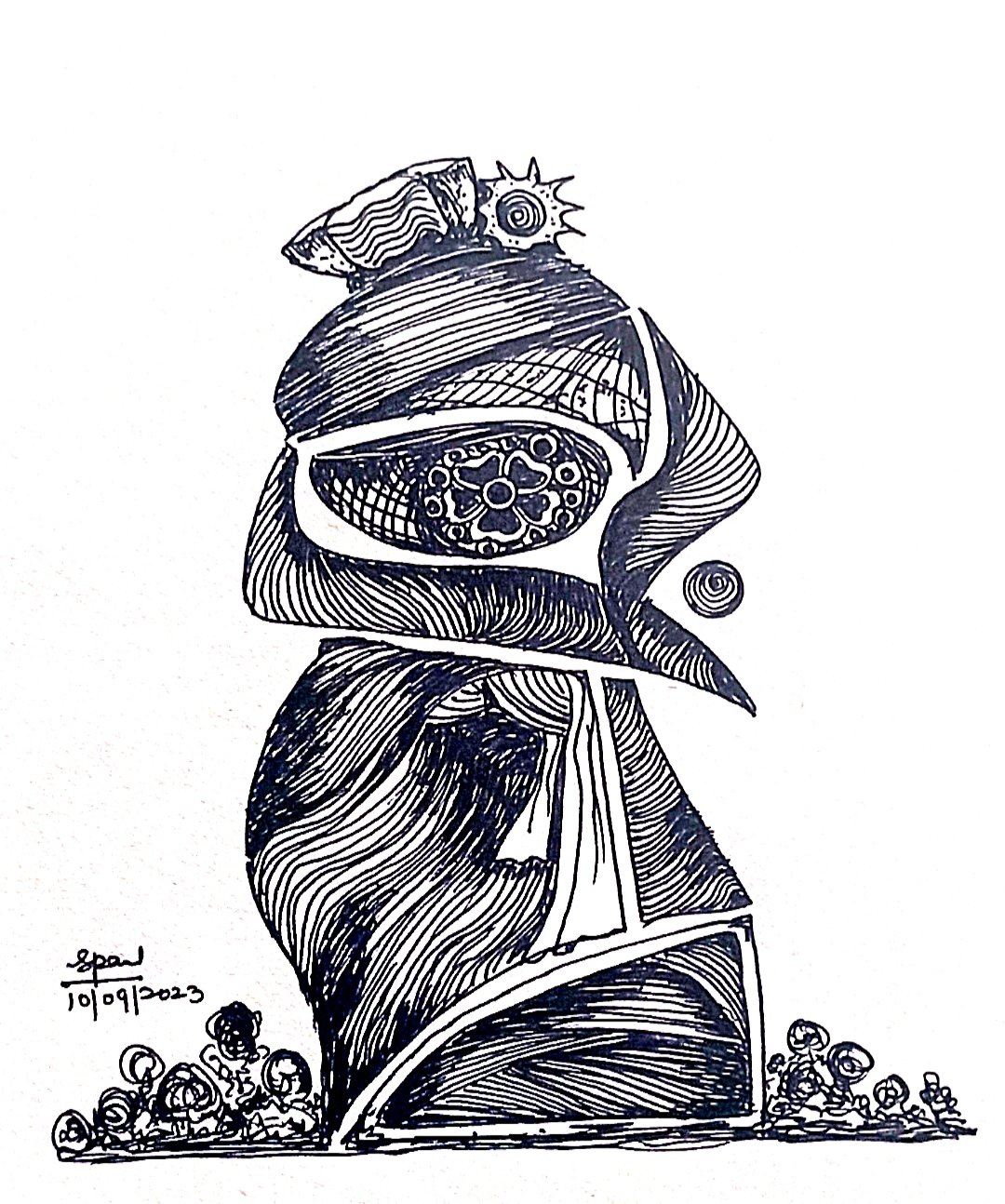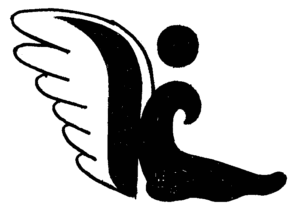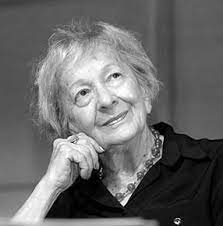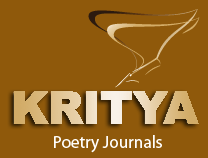
Our Masters

Wislawa Szymborska
Wislawa Szymborska won the 1996 Nobel Prize for Literature. She was born in Kornik in Western Poland on 2 July 1923. Since 1931 she has been living in Krakow, where during 1945-1948 she studied Polish Literature and Sociology at the Jagiellonian University. Szymborska made her debut in March 1945 with a poem “Szukam slowa” (I am Looking for a Word) in the daily “Dziennik Polski”.
During 1953-1981 she worked as poetry editor and columnist in the Krakow literary weekly “Zycie Literackie” where the series of her essays “Lektury nadobowiazkowe” appeared (the series has been renewed lately in the addition to “Gazeta Wyborcza”-“Gazeta o Ksiazkach”). The collection “Lektury nadobowiazkowe” was published in the form of a book four times.
Szymborska has published 16 collections of poetry: Dlatego zyjemy (1952), Pytania zadawane sobie (1954), Wolanie do Yeti (1957), Sól (1962), Wiersze wybrane (1964), Poezje wybrane (1967), Sto pociech (1967), Poezje (1970), Wszelki wypadek (1972), Wybór wierszy (1973), Tarsjusz i inne wiersze (1976), Wielka liczba (1976), Poezje wybrane II (1983), Ludzie na moscie (1986). Koniec i poczatek (1993, 1996), Widok z ziarnkiem piasku. 102 wiersze (1996) . Wislawa Szymborska has also translated French poetry.
Her poems have been translated (and published in book form) in English, German, Swedish, Italian, Danish, Hebrew, Hungarian, Czech, Slovakian, Serbo-Croatian, Romanian, Bulgarian and other languages. They have also been published in many foreign anthologies of Polish poetry.
Wislawa Szymborska is the Goethe Prize winner (1991) and Herder Prize winner (1995). She has a degree of Honorary Doctor of Letters of Poznan University (1995). In 1996 she received the Polish PEN Club prize.
Biography from: nobelprize.org
Tortures
Nothing has changed.
The body is susceptible to pain,
it must eat and breathe air and sleep,
it has thin skin and blood right underneath,
an adequate stock of teeth and nails,
its bones are breakable, its joints are stretchable.
In tortures all this is taken into account.
Nothing has changed.
The body shudders as it shuddered
before the founding of Rome and after,
in the twentieth century before and after Christ.
Tortures are as they were, it’s just the earth that’s grown smaller,
and whatever happens seems right on the other side of the wall.
Nothing has changed. It’s just that there are more people,
besides the old offenses new ones have appeared,
real, imaginary, temporary, and none,
but the howl with which the body responds to them,
was, is and ever will be a howl of innocence
according to the time-honored scale and tonality.
Nothing has changed. Maybe just the manners, ceremonies, dances.
Yet the movement of the hands in protecting the head is the same.
The body writhes, jerks and tries to pull away,
its legs give out, it falls, the knees fly up,
it turns blue, swells, salivates and bleeds.
Nothing has changed. Except for the course of boundaries,
the line of forests, coasts, deserts and glaciers.
Amid these landscapes traipses the soul,
disappears, comes back, draws nearer, moves away,
alien to itself, elusive, at times certain, at others uncertain of its own existence,
while the body is and is and is
and has no place of its own.
From Famous Poets and Poems http://famouspoetsandpoems.com/poets/wislawa_szymborska/poems/11682
Some Like Poetry
Write it. Write. In ordinary ink
on ordinary paper: they were given no food,
they all died of hunger. “All. How many?
It’s a big meadow. How much grass
for each one?” Write: I don’t know.
History counts its skeletons in round numbers.
A thousand and one remains a thousand,
as though the one had never existed:
an imaginary embryo, an empty cradle,
an ABC never read,
air that laughs, cries, grows,
emptiness running down steps toward the garden,
nobody’s place in the line.
We stand in the meadow where it became flesh,
and the meadow is silent as a false witness.
Sunny. Green. Nearby, a forest
with wood for chewing and water under the bark-
every day a full ration of the view
until you go blind. Overhead, a bird-
the shadow of its life-giving wings
brushed their lips. Their jaws opened.
Teeth clacked against teeth.
At night, the sickle moon shone in the sky
and reaped wheat for their bread.
Hands came floating from blackened icons,
empty cups in their fingers.
On a spit of barbed wire,
a man was turning.
They sang with their mouths full of earth.
“A lovely song of how war strikes straight
at the heart.” Write: how silent.
“Yes.”
Going Home
He came home. Said nothing.
It was clear, though, that something had gone wrong.
He lay down fully dressed.
Pulled the blanket over his head.
Tucked up his knees.
He’s nearly forty, but not at the moment.
He exists just as he did inside his mother’s womb,
clad in seven walls of skin, in sheltered darkness.
Tomorrow he’ll give a lecture
on homeostasis in metagalactic cosmonautics.
For now, though, he has curled up and gone to sleep.
Still
In sealed box cars travel
names across the land,
and how far they will travel so,
and will they ever get out,
don’t ask, I won’t say, I don’t know.
The name Nathan strikes fist against wall,
the name Isaac, demented, sings,
the name Sarah calls out for water for
the name Aaron that’s dying of thirst.
Don’t jump while it’s moving, name David.
You’re a name that dooms to defeat,
given to no one, and homeless,
too heavy to bear in this land.
Let your son have a Slavic name,
for here they count hairs on the head,
for here they tell good from evil
by names and by eyelids’ shape.
Don’t jump while it’s moving. Your son will be Lech.
Don’t jump while it’s moving. Not time yet.
Don’t jump. The night echoes like laughter
mocking clatter of wheels upon tracks.
A cloud made of people moved over the land,
a big cloud gives a small rain, one tear,
a small rain—one tear, a dry season.
Tracks lead off into black forest.
Cor-rect, cor-rect clicks the wheel. Gladeless forest.
Cor-rect, cor-rect. Through the forest a convoy of clamors.
Cor-rect, cor-rect. Awakened in the night I hear
cor-rect, cor-rect, crash of silence on silence.
Pi
The admirable number pi:
three point one four one.
All the following digits are also just a start,
five nine two because it never ends.
It can’t be grasped, six five three five , at a glance,
eight nine, by calculation,
seven nine, through imagination,
or even three two three eight in jest, or by comparison
four six to anything
two six four three in the world.
The longest snake on earth ends at thirty-odd feet.
Same goes for fairy tale snakes, though they make it a little longer.
The caravan of digits that is pi
does not stop at the edge of the page,
but runs off the table and into the air,
over the wall, a leaf, a bird’s nest, the clouds, straight into the sky,
through all the bloatedness and bottomlessness.
Oh how short, all but mouse-like is the comet’s tail!
How frail is a ray of starlight, bending in any old space!
Meanwhile two three fifteen three hundred nineteen
my phone number your shirt size
the year nineteen hundred and seventy-three sixth floor
number of inhabitants sixty-five cents
hip measurement two fingers a charade and a code,
in which we find how blithe the trostle sings!
and please remain calm,
and heaven and earth shall pass away,
but not pi, that won’t happen,
it still has an okay five,
and quite a fine eight,
and all but final seven,
prodding and prodding a plodding eternity
to last.
A Large Number
Four billion people on this earth,
but my imagination is the way it’s always been:
bad with large numbers.
It is still moved by particularity.
It flits about the darkness like a flashlight beam,
disclosing only random faces,
while the rest go blindly by,
unthought of, unpitied.
Not even a Dante could have stopped that.
So what do you do when you’re not,
even with all the muses on your side?
Non omnis moriar-a premature worry.
Yet am I fully alive, and is that enough?
It never has been, and even less so now.
I select by rejecting, for there’s no other way,
but what I reject, is more numerous,
more dense, more intrusive than ever.
At the cost of untold losses-a poem, a sigh.
I reply with a whisper to a thunderous calling.
How much I am silent about I can’t say.
A mouse at the foot of mother mountain.
Life lasts as long as a few lines of claws in the sand.
My dreams-even they are not as populous as they should be.
There is more solitude in them than crowds or clamor.
Sometimes someone long dead will drop by for a bit.
A single hand turns a knob.
Annexes of echo overgrow the empty house.
I run from the threshold down into the quiet
valley seemingly no one’s—an anachronism by now.
Where does all this space still in me come from—
that I don’t know.
‘
http://nobelprize.org/nobel_prizes/literature/laureates/1996/szymborska-poems-1-e.html
Utopia
Island where all becomes clear.
Solid ground beneath your feet.
The only roads are those that offer access.
Bushes bend beneath the weight of proofs.
The Tree of Valid Supposition grows here
with branches disentangled since time immemorial.
The Tree of Understanding, dazzlingly straight and simple,
sprouts by the spring called Now I Get It.
The thicker the woods, the vaster the vista:
the Valley of Obviously.
If any doubts arise, the wind dispels them instantly.
Echoes stir unsummoned
and eagerly explain all the secrets of the worlds.
On the right a cave where Meaning lies.
On the left the Lake of Deep Conviction.
Truth breaks from the bottom and bobs to the surface.
Unshakable Confidence towers over the valley.
Its peak offers an excellent view of the Essence of Things.
For all its charms, the island is uninhabited,
and the faint footprints scattered on its beaches
turn without exception to the sea.
As if all you can do here is leave
and plunge, never to return, into the depths.
Into unfathomable life.
Translated by S. Baranczak & C. Cavanagh
On Death, without Exaggeration
It can’t take a joke,
find a star, make a bridge.
It knows nothing about weaving, mining, farming,
building ships, or baking cakes.
In our planning for tomorrow,
it has the final word,
which is always beside the point.
It can’t even get the things done
that are part of its trade:
dig a grave,
make a coffin,
clean up after itself.
Preoccupied with killing,
it does the job awkwardly,
without system or skill.
As though each of us were its first kill.
Oh, it has its triumphs,
but look at its countless defeats,
missed blows,
and repeat attempts!
Sometimes it isn’t strong enough
to swat a fly from the air.
Many are the caterpillars
that have outcrawled it.
All those bulbs, pods,
tentacles, fins, tracheae,
nuptial plumage, and winter fur
show that it has fallen behind
with its halfhearted work.
Ill will won’t help
and even our lending a hand with wars and coups d’etat
is so far not enough.
Hearts beat inside eggs.
Babies’ skeletons grow.
Seeds, hard at work, sprout their first tiny pair of leaves
and sometimes even tall trees fall away.
Whoever claims that it’s omnipotent
is himself living proof
that it’s not.
There’s no life
that couldn’t be immortal
if only for a moment.
Death
always arrives by that very moment too late.
In vain it tugs at the knob
of the invisible door.
As far as you’ve come
can’t be undone.
Translated by S. Baranczak & C. Cavanagh
The Three Oddest Words
When I pronounce the word Future,
the first syllable already belongs to the past.
When I pronounce the word Silence,
I destroy it.
When I pronounce the word Nothing,
I make something no non-being can hold.
Translated by S. Baranczak & C. Cavanagh
Possibilities
I prefer movies.
I prefer cats.
I prefer the oaks along the Warta.
I prefer Dickens to Dostoyevsky.
I prefer myself liking people
to myself loving mankind.
I prefer keeping a needle and thread on hand, just in case.
I prefer the color green.
I prefer not to maintain
that reason is to blame for everything.
I prefer exceptions.
I prefer to leave early.
I prefer talking to doctors about something else.
I prefer the old fine-lined illustrations.
I prefer the absurdity of writing poems
to the absurdity of not writing poems.
I prefer, where love’s concerned, nonspecific anniversaries
that can be celebrated every day.
I prefer moralists
who promise me nothing.
I prefer cunning kindness to the over-trustful kind.
I prefer the earth in civvies.
I prefer conquered to conquering countries.
I prefer having some reservations.
I prefer the hell of chaos to the hell of order.
I prefer Grimms’ fairy tales to the newspapers’ front pages.
I prefer leaves without flowers to flowers without leaves.
I prefer dogs with uncropped tails.
I prefer light eyes, since mine are dark.
I prefer desk drawers.
I prefer many things that I haven’t mentioned here
to many things I’ve also left unsaid.
I prefer zeroes on the loose
to those lined up behind a cipher.
I prefer the time of insects to the time of stars.
I prefer to knock on wood.
I prefer not to ask how much longer and when.
I prefer keeping in mind even the possibility
that existence has its own reason for being.
Copyright- Wislawa Szymborska, S. Baranczak & C. Cavanagh
The Joy of Writing
Why does this written doe bound through these written woods?
For a drink of written water from a spring
whose surface will xerox her soft muzzle?
Why does she lift her head; does she hear something?
Perched on four slim legs borrowed from the truth,
she pricks up her ears beneath my fingertips.
Silence – this word also rustles across the page
and parts the boughs
that have sprouted from the word “woods.”
Lying in wait, set to pounce on the blank page,
are letters up to no good,
clutches of clauses so subordinate
they’ll never let her get away.
Each drop of ink contains a fair supply
of hunters, equipped with squinting eyes behind their sights,
prepared to swarm the sloping pen at any moment,
surround the doe, and slowly aim their guns.
They forget that what’s here isn’t life.
Other laws, black on white, obtain.
The twinkling of an eye will take as long as I say,
and will, if I wish, divide into tiny eternities,
full of bullets stopped in mid-flight.
Not a thing will ever happen unless I say so.
Without my blessing, not a leaf will fall,
not a blade of grass will bend beneath that little hoof’s full stop.
Is there then a world
where I rule absolutely on fate?
A time I bind with chains of signs?
An existence become endless at my bidding?
The joy of writing.
The power of preserving.
Revenge of a mortal hand.
Translated by S. Baranczak & C. Cavanagh
Copyright- Wislawa Szymborska, S. Baranczak & C. Cavanagh

